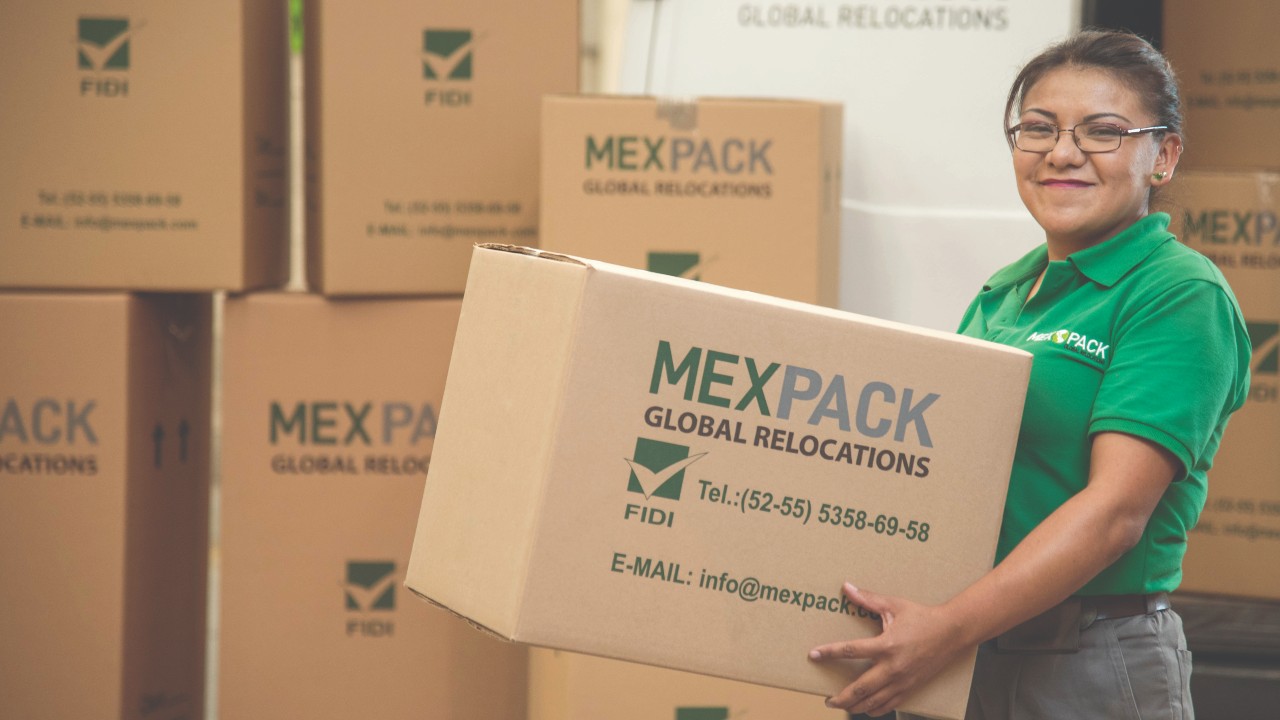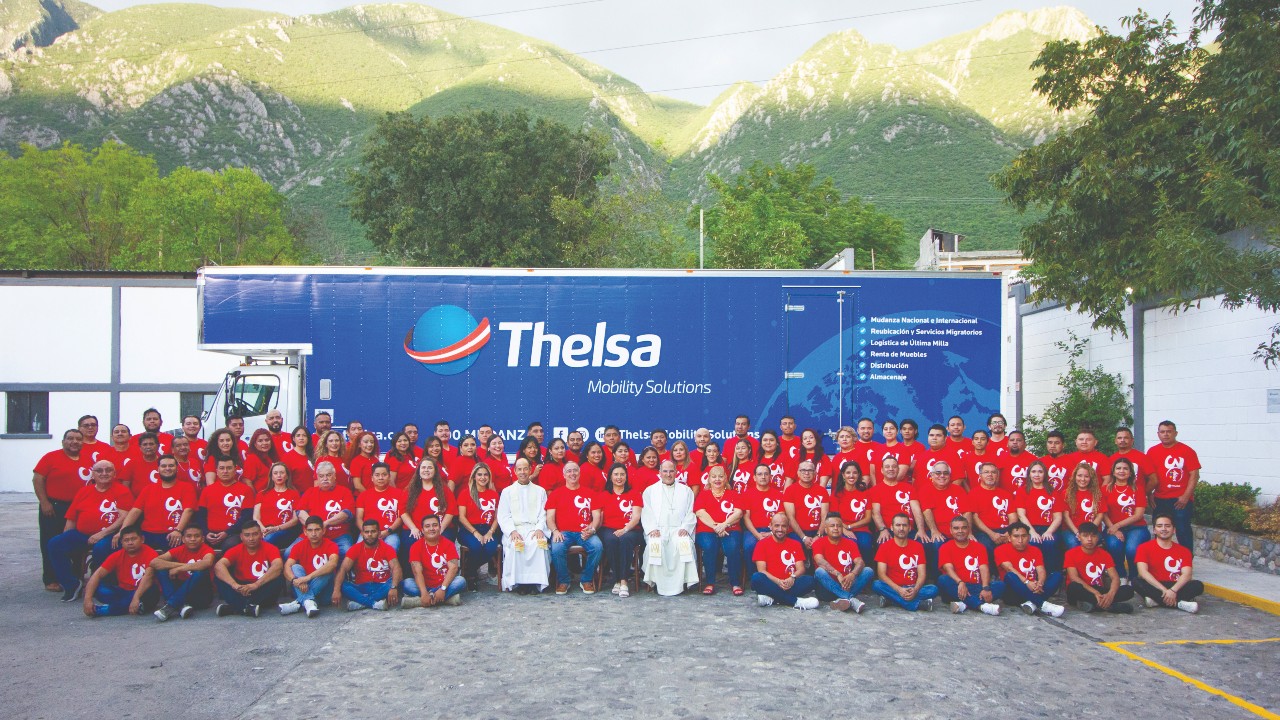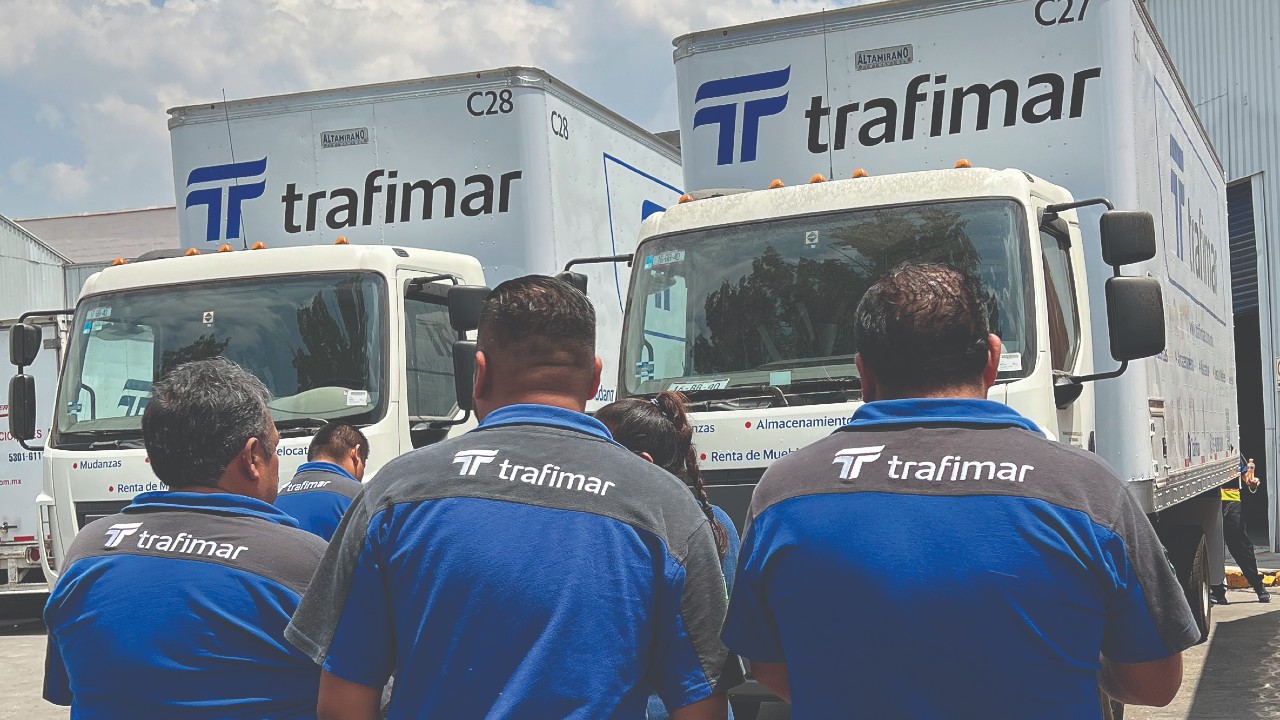Despite unique challenges – including navigating large and lawless regions – Mexico’s moving business is booming, spurred on by opportunities created by the pandemic and the entrepreneurial spirit of its operators. Andrew Mourant speaks to FIDI Affiliates about running a company in the country
Mexico is far smaller today than the vast, sprawling empire it once was – which, until the late 1840s, included many of the southern United States – but it remains the world’s 13th-largest country. Home to almost 130 million people, and with the biggest population of Spanish speakers, it is an industrial powerhouse with vast mineral resources and a wide- ranging service sector.
Despite well-documented border tensions with the US, proximity to the States is a key economic driver and stimulus for Mexico, not least for its moving industry. FIDI-affiliated company Mexpack International, which mainly focuses on global moving and destination services provision (DSP), is among those that benefit. ‘There are opportunities based on American companies wanting factories closer to the US without actually being in the US,’ says Lorne Dixon, Mexpack’s Quality Manager. ‘Some are moving production from Asia to Mexico.’

Creating global changes in supply chains is one of the legacies of COVID that has worked in Mexico’s favour. ‘It has made the country a key attractor of foreign direct investment (FDI) through nearshoring,’ says Alejandro Beltrán, CEO of CIME Mexico.
‘The north is set to benefit, particularly states close to the US border, such as Nuevo León – where the Tesla Gigafactory is expected to begin production by 2025 – and Coahuila.’
Carmen Lerdo de Tejada Jr, Managing Director and CEO of Transcontainer, agrees, adding that Mexico has made ‘significant progress’ in trade and industry. ‘I believe there are opportunities for everyone,’ she says.
Transcontainer was already spreading its wings before the pandemic. From 2019-22, moves abroad rose 63 per cent for the Asia Pacific (APAC) region, 16.67 per cent for Latin America (LATAM) and 20 per cent for the US. Despite dropping in 2023, they remained 143 per cent higher than in 2019.
The firm’s mainstay trade – up 90 per cent – is international and domestic household goods, but trade shows, moving high-value specialist items with ‘white glove’ delivery, cargo, and distribution reflect Transcontainer’s intent to diversify.
For all that they have in common, each FIDI firm lays claim to some distinctive quality. For Beltrán, it’s CIME’s focus on a personalised service for international clients – ‘no relocation is ever the same’ – whereas for Roberto Balderas Dalmas, CEO of Balderas, which mainly serves private clients, it’s adapting to the ‘changing needs of housewives’. ‘We consider it the most complicated niche to maintain, as it’s by recommendation,’ Dalmas says. ‘Clients want to be convinced they’ll get a professional service and “pampering”.’
Mexpack’s Dixon is a realist. ‘With the high number of moves and relocations every year, it’s impossible for every service to be perfect,’ he says. What sets Mexpack apart, he adds, is the speed with which it sorts out problems when they arise.
Thelsa Mobility Solutions, with 14 Mexican offices and a branch in McAllen, Texas, offers a wide range of services – from local, domestic and international moves to pet transportation. ‘Our mission is to integrate global relocation and logistics by following God-honouring principles – serving others and developing employees,’ says International Director Philippe Rodrigues. The firm’s mantra is ‘think innovation and never stay in the comfort zone’. ‘We’re a family business with a strong senior management structure, which guarantees continuity. We listen to our talent and can make quick decisions.’

Transcontainer staff have a ‘sense of belonging, love what they do and take pride in doing it’, says Lerdo de Tejada. ‘It’s how you act to resolve hiccups that makes a difference. We come through challenging times by being transparent, playing to our strengths, and finding a way to minimise any weakness.’
Few times were tougher than the pandemic, and changes forced upon the industry have become embedded in Mexico, as elsewhere, such as the rise of remote/hybrid working. The trend for his countrymen to adapt homes and weekend houses so they can work outside the big cities is, Dalmas says, ‘here to stay’.
As is accelerated digitalisation, which is hastening the adoption of virtual surveys, for instance. FIDI Affiliate Trafimar, which has 450 employees spread across five ports and 10 cities, now claims to be 100 per cent paperless and digitalised.
‘Technology has doubled,’ says Beltrán. ‘The younger generations have become industry leaders, accelerating their transitions into key leadership roles.’
Rodrigues believes transportation prices that were initially inflated by COVID have also taken root. ‘Transparent rates – which will probably oblige people to review shipment volumes – and sustainability requirements are key to understanding how the market will go,’ he says.
One good thing the pandemic has brought about is companies’ changed outlook on taking care of staff.
‘There’s been an important refocus on the wellbeing of our people and customers,’ says Trafimar CEO Francis Toedtli, whose firm’s business spans international and domestic moves, last-mile delivery and logistics, and includes a shipping agency. ‘We’re reinforcing our investment in technology to help all this along.’
Transcontainer now provides a health service benefit for employees and their families, offering physical and psychological care, while Dixon says the pandemic spurred on Mexpack to better safeguard the health of staff and clients. ‘We take more precautions than before to avoid spreading even a basic cold.’
Precautions against spreading disease aren’t the only duty-of-care concern for FIDI members. They must also grapple with Mexico’s pockets of lawlessness. Some parts are pretty much no-go areas. In fact, between January and September 2023, Mexico recorded more than 7,000 thefts from lorries – 10 per cent more than for the same period in 2022 – mostly involving violence.
‘We turn down business rather than expose colleagues to unnecessary risks,’ says Dixon. ‘However, crime exists outside the “lawless” parts, and we do our best to maintain contact with our colleagues at all times [via GPS-tracked vehicles and other security policies].’ Transcontainer reports that violence involving criminal groups has created heightened insecurity, not least in border areas. Basic precautions include not driving at night or through unsafe regions. ‘We’ve tried to maintain a low profile – as a company transporting used household goods, thankfully we’ve never been the target,’ says Lerdo de Tejada.
Route planning, GPS coverage, security and coordination with the truckers’ association local contacts are all used to help keep Trafimar employees safe. ‘We work with security consultants to stay updated about the risks with Mexico and beyond,’ says Toedtli.
For Balderas, the ‘complicated issue’ posed by bandit country has forced his firm to ‘reinvent and look for training and technology-allied solutions.’
Thelsa has adapted in a similar way. ‘Although household goods aren’t really a target, our trucks must now take toll roads and cannot travel by night, and the trucks of our external suppliers are GPS-tracked,’ says Rodrigues. ‘The only good thing is that we’ve grown creative in finding solutions. At the end of the day, businesses and people needing to relocate to Mexico will do so.’
Problems can also arise at ports, though less so in recent years. ‘Bribery with customs officials went out of fashion a while ago,’ says Dixon. ‘Today’s officials and military personnel who manage the ports interpret the law without much flexibility. Items that aren’t strictly used household goods are confiscated and business licences are at risk of being lost.
‘Whenever shipments follow the rules, we’ve experienced no delays. The trick is to follow the guidelines. Bribery in order to move a shipment through faster isn’t an option.’
Thelsa, too, makes a point of shunning dubious operators. ‘In the past two years, we’ve been working on alternative logistic solutions to counteract the challenges they present,’ says Rodrigues. Balderas, meanwhile, has chosen to contract customs services with agencies, supplying client documentation beforehand ‘in order and conforming to the laws of each country’.
The lure of the US dollar, the move towards home working, and the prospect of running into roadside bandits don’t augur well for recruiting new blood. Women drivers, especially, are few and far between. Globally, less than three per cent of truck drivers are female and, in Mexico, women make up just two per cent of a 500,000-strong workforce.
‘In general, it’s difficult to attract new people to removals – it isn’t a sexy industry to outsiders,’ says Dixon. ‘Either you’re born into it, or you fall into it by accident and stay because you’re crazy. When someone comes for interview, we need to sell the industry. We’re just looking for hardworking and “crazy” people – gender or age doesn’t matter.
‘Female drivers haven’t had many opportunities and we offer these for everyone. But because of traditional cultural norms, it’s unlikely there’ll be many in the near future.’

Trafimar has also experienced a growing challenge in attracting people. ‘There’s a shortage of drivers because of the increased demand and growth of freight, and the fact that Mexican drivers now operate legally in the States,’ says Toedtli. ‘However, we’re blessed to have several generations of packers who are “artists” in their trade.’
Beltrán can also struggle to find recruits with the right qualities. ‘However, it’s fascinating to witness the increasing presence of women in traditionally male-dominated roles,’ he says. ‘I believe women packers display more attention to detail than men and (with drivers) we’ve seen them show a precision that exceeds many males – though it’s a challenge for them to drive across the country.
‘Our operations director is a woman, a role historically held by a man, yet we cannot imagine anyone else in that position – her work is exceptional.’ Balderas’s philosophy is to grow personnel internally.
‘They’ll start as stevedores, packers, and over time become heavy truck drivers,’ says Dalmas. ‘But because of the lack of operators in the US, companies there are offering high salaries. That leaves a labour void in Mexico, which is why there are now training schools for women – the first generations are already on the roads.’
These days, Rodrigues points out, people may be unwilling to accept that the time and effort they put in – removals is often hard work – equates to the financial and personal rewards they’ll receive. ‘With all the challenges our industry has suffered, it can be difficult to fully satisfy a customer.’
Moreover, he adds, the young may be more attracted to technology-orientated careers and the salaries that go with them. ‘The competitiveness of removals and concentration of the control of the global business have impacted on our margins. Every year it becomes more difficult to compete with the pay in other industries.’
Thelsa has a policy of trying to balance the gender ratio at all levels. ‘I’ve always had more women in my teams, as I’ve found them committed and good at multitasking – they offer a different viewpoint and are very good at communicating with customers,’ Rodrigues says.
‘We’ve implemented a programme to have more of them in our operational teams. Mexican society is still very patriarchal, but we’re proud of increasing the number of women in strategic roles.’

